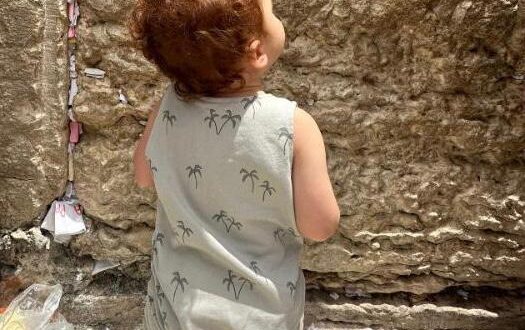Parsha Vaetchanan: The Best Way to Pray
This week’s Torah portion contains the most basic concept and credo in Judaism, the Shema. “Hear O Israel, the Lord is our God, the Lord is One” proclaims a fundamental belief that Judaism has taught much of the world. That there is only One God and not many gods.
Because we are overly familiar with this proclamation, we may take it for granted and give little thought to its meaning. What exactly is the implication of this notion and what difference does it make if there is One God or a bunch? We Jews proudly proclaim that Avraham and Judaism taught the world about monotheism. But so what?
Perhaps the key to appreciating the meaning behind One God is found in the name of this week’s parsha, VaEtchanan. The parsha is a continuation of Moshe’s speech that he delivers to the nation before his death. Our parsha picks up with Moshe mentioning that he pleaded with God to allow him to go to the land of Canaan/Israel along with the nation – a request that was ultimately denied.
The famous 11th century French commentator, Rashi, notes the unusual wording that Moshe uses when in mentioning his prayer. ואתחנן VaEtchanan “and I entreated”. The root of this word is חן chayn and refers to a gift that is gratis (free). Says Rashi:
Even though tzadikim have the ability to (request something from God) based on their good deeds, they make requests from God only through the agency of a ‘free gift’.
Rashi is informing us that although the righteous may have credits coming their way and chits to cash in on, they nevertheless do not utilize these when asking anything from God. Rather, they ask for a freebie.
Initially it sounds like Rashi is telling us that tzadikim don’t want to use up any of their next-worldly rewards with their this-worldly requests, owing to a bad business deal on a spiritual ledger. But upon deeper reflection this is really not what’s going on here. Rather we are being taught an important principle regarding prayer, and how to increase the chances of having God respond positively to our ask.
Going back to the Shema, Moshe understood more than anybody the real meaning and implications of God being “One”, and to gain his insight you need to don your philosophy cap for a moment. Moshe knew that inherent in the definition of God’s Oneness is the fact that God is Infinite – having no beginning and no end. That is what One really means. It doesn’t mean merely the first one or the best one, but the only one as it says later in the parsha: אין עוד מלבדו “There is nothing other than Him”.
Since God is infinite, He has no limitations – not in time and not in space. Infinite means He is perfect, and perfection implies that He has no needs whatsoever. He also doesn’t share Creation or the Universe with any other gods. There are no partners or shareholders. He owns 100% of the stock. As such, Moshe knew that there is nothing that he, nor anyone else, could ever give to God in any real sense. One cannot improve upon perfection, and an Infinite, perfect Being certainly lacks nothing that you or anyone else can fulfill.
This being the case, to make a request from God that was dependent on a payment for any good deed that Moshe may have done in his lifetime – and there were certainly plenty of them – is an absurdity. The idea of a quid pro quo relationship with God is meaningless because God doesn’t really need anything.
Therefore we are left with only one choice when it comes to asking anything from God: Ask for it … just because. Don’t make your request depend on anything that you may have done or plan to do, but on the realization that God has all the power to do anything and everything that you, or He, may want.
This is akin to the relationship between a parent and child. There are many times a parent will indeed fulfill the needs of a child from a sense of obligation or in response to good behavior. But the sweetest and most pure give-and-take between parent and child is when the child looks up at Mom or Dad with their big eyes and innocent face and simply asks, “Can I have this… just ’cause?” And this is not just with little kids but with big ones too. The pleasure of giving out of pure love and with no expectation of a return favour is the most enjoyable form of giving – for us and even for God.
We may mistakenly think that we should make our prayers and requests based on what a good person we are and all the fantastic things we have done and how much charity we plan to give when we win the lottery. But in truth the most effective way of asking is by doing just that – simply asking. No strings attached, no “I deserve this”. Just ask with the sincerity and genuineness that a child would from a loving parent.
This is not a slam dunk, and let’s face it, even Moshe didn’t get a Yes to his prayer. But that doesn’t mean we cannot learn from the expert, from Moshe and realize that the best way to ask is with chayn – with grace and charm. Ask just because you want it. Ask because it will make you happy. God wants you to be happy and all it sometimes takes is a little humility and a child-like magic to make your wishes come true.
I’ll do for you
Anything you want me to
You’re my world my hopes and dreams
Without you girl
It don’t mean a thing
For you I’ll do
Anything you want me to
-Barry White

